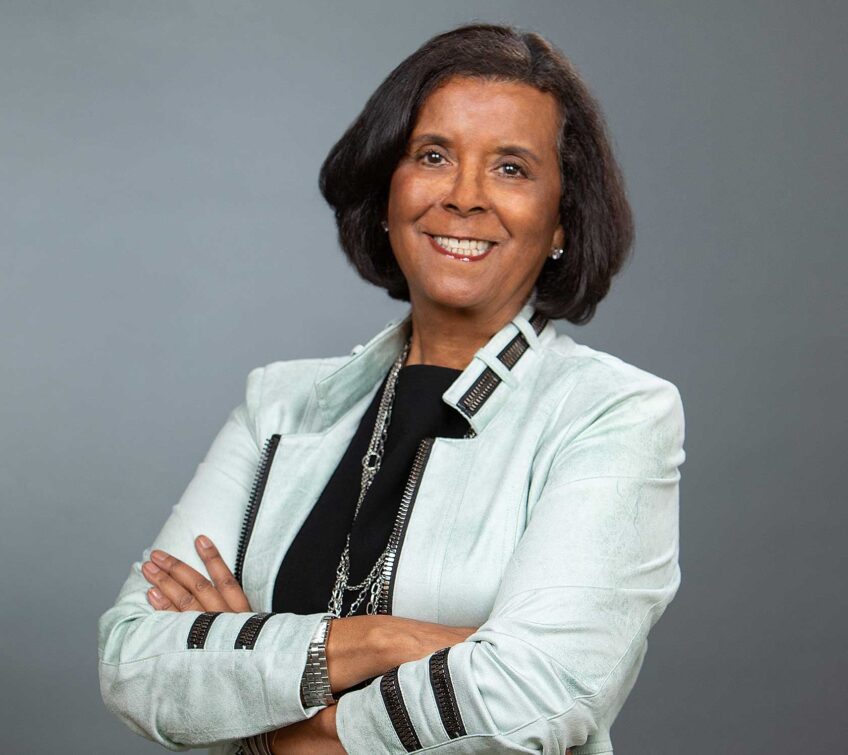A lack of financial literacy
State lags in teaching students to manage their money

A recently released report about the financial literacy of Massachusetts residents highlighted that the state is behind in helping educate children, students and adults in ways to better manage money and understand the effects of economic decisions. With a particular focus on the state’s lower-income and underserved communities, the report also detailed a number of ways to make things better and help all state’s residents become financially savvy.
“Financial literacy to me is one of the essential skill bases that every individual in this state can benefit from. I believe not creating access to these kind of skills actually impedes being able to be successful and thrive,” said Treasurer Deborah Goldberg, who has led efforts to create a state Financial Literacy Task Force and “Report on Financial Literacy in Massachusetts,” which was released on Dec. 3. “It is our role to make sure that people have the financial skills they need to get ahead in this challenging world.”

Author: Martin DesmaraisJohn Chapman, Undersecretary of Consumer Affairs and Business Regulation, speaks at the release of the “Report on Financial Literacy in Massachusetts” on Dec. 3 at the Massachusetts State House.
While Massachusetts isn’t the only state working on this, surprisingly the Commonwealth is one of only 12 states that does not require financial literacy in schools, for example, and the task force report admits that its education efforts have received a failing grade to this point.
Goldberg pointed out that the seven months of task force work leading up to the release of the financial literacy report is the first step in fixing this problem by starting at the bottom to strengthen the state’s economic future with “a blueprint for economic security and financial stability that creates opportunity for everyone throughout the Commonwealth.”
Admittedly this is easier said than done, but to the report’s credit it does contain some serious details and recommendations about the first steps.
Existing programs
One of the first overall report recommendations is to organize, connect and build on the various financial education activities already in place in the state to make them more efficient and more accessible. The gist is that there are plenty of good programs already happening but not enough people are taking advantage of them.
This led to the second main recommendation that the state needs to promote a financial education awareness campaign to connect people with the support available and increase the recognition that financial literacy is something that can help improve economic situations.
One of the most interesting recommendations from the report was the need to educate state leaders and politicians, as well as create policy for programming within the Office of Economic Empowerment, that recognizes that there is a family dynamic to financial literacy.
The financial literacy task force, which was made up of more than 30 members from organizations, schools and companies throughout the state, examined financial literacy in three areas and age groups: K-12, college and adult. The task force quickly determined that too often such target areas neglected that while a young student or head of the household might be the focus for a financial education program they do not exist in a vacuum. Parents’ thoughts on money matters can impact their children, just as a spouse could influence financial decisions. The aim must be to educate in the context of the role a target audience has in the family dynamic.
“Financial education is a family issue. We are not islands by ourselves. The family unit is also an economic unit and it is very touched by issues of finance and economics,” said Financial Literacy Task Force Chair Barbara Anthony, former Undersecretary of Massachusetts Office of Consumer Affairs and Business Regulation and a senior fellow at the Kennedy School of Government and Pioneer Institute. “This idea of incorporating the family dynamic is paramount to all the recommendations we are making.”
The last overall recommendation was to work closely with legislative affairs to monitor and push for legislation supporting financial literacy.
Improving financial literacy education is about money in more ways than one. It is one thing to come up with a plan for more programs and support to help people become more financially savvy, but it is another thing to pay for it with already tapped state budgets. For this reason, the task force was ordered to not just suggest ways to make things better but also begin work toward finding ways to pay for doing so. This means a strong tie with state political leaders and legislative efforts to put some of the recommendations the report makes into practice.

Author: Martin DesmaraisTreasurer Deborah Goldberg.
To this end, the financial literacy task force is backed by a number of legislators and state officials.
John Chapman, Undersecretary of Consumer Affairs and Business Regulation, is part of the task force and he said he will work to make sure the state commits financial resources to the important financial literacy efforts outlined in the task force report.
“I am hopeful that these frameworks and principles and recommendations that have been developed in the report will not only raise awareness in the deficiencies in financial literacy but systematically make readily accessible effective programs and curriculums available across the Commonwealth. It is important because it’s all of our futures,” Chapman said.
Early intervention
State Rep. Hannah Kane, R-Shrewsbury, who was part of the task force’s K-12 subcommittee, pledged her efforts to get financial literacy education started with young students.
“Our best opportunity to influence a bright financial future for the next generation is to start simple and to start early. To begin assembling the building blocks of financial literacy at a young age, so that students can progress in their understanding of financial concepts by providing information and tools just in time. In other words, before the students will be required to make complex and oftentimes life-altering financial decisions,” said Kane.
The task force also includes state Senator Michael Moore, R-Millbury and state Rep. Lori Ehrlich, D-Marblehead.
All told the “Report on Financial Literacy in Massachusetts” makes 18 specific recommendations across the K-12, college and adult categories to improve financial literacy through the state.






